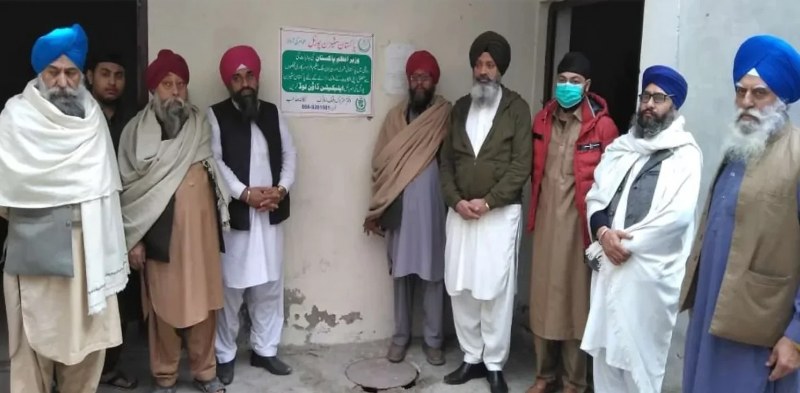 Lahore
Lahore
Lahore’s shrinking Sikh community: A story of survival
Lahore, a city once renowned for its vibrant Sikh community, has witnessed a stark decline in its Sikh population over recent decades.
Once home to dozens of bustling gurdwaras, Lahore now stands as a shadow of its former self, with only a few hundred Sikhs remaining.
This demographic shift tells a story of struggle, resilience, and an uncertain future.
According to a 2019 report by the Pakistan Sikh Gurdwara Parbandhak Committee (PSGPC), approximately 70,000 Sikhs remain in Pakistan, mostly concentrated in the provinces of Punjab and Sindh. However, in Lahore, the numbers have dwindled alarmingly. Current estimates suggest that only about 500-600 Sikhs reside in the city, a stark contrast to the several thousand in the early 20th century.
The decline in Lahore’s Sikh population is attributed to multiple factors, the most significant being the mass migration following the Partition of India in 1947. The violence and upheaval during this period forced many Sikhs to leave their homes and relocate to India. Lahore, once a thriving hub of Sikh culture, was deeply affected by this exodus.
Today, the remaining Sikh community in Lahore faces numerous challenges, foremost among them being poverty. Many Sikhs in the city live in dire conditions, lacking access to basic amenities like clean water and electricity. This economic hardship has made it difficult for them to sustain their cultural and religious practices, threatening their identity.
Discrimination is another pressing issue. Despite Pakistan’s emphasis on its Muslim identity, the country has a history of mistreating its religious minorities. Sikhs in Lahore have faced decades of discrimination and persecution, leading to further alienation and marginalization.
The plight of Lahore’s Sikhs reflects a broader trend of the marginalization of religious minorities in Pakistan. It is imperative that the government takes concrete action to address the underlying issues contributing to this decline, including poverty, discrimination, and lack of access to essential services. Ensuring the rights of all citizens, regardless of their faith, must be a priority.
Globally, the situation of religious minorities is equally concerning. Rising intolerance and discrimination against minorities are evident worldwide. It is crucial to recognize the value of diversity and strive to protect minority communities. As a global community, we must ensure that the rights of religious minorities are respected and upheld.
Despite the challenges, there are glimmers of hope. Many Sikhs in Lahore are coming together to fight for their rights and preserve their heritage. Gurdwaras in the city continue to serve as vibrant centers of community activity, where Sikhs gather to worship and celebrate. The Nanakana Sahib Gurdwara, for instance, attracts thousands of Sikhs from around the world each year, who come to honor the founder of their faith.
There are also encouraging signs that the government is beginning to address the community’s plight. The PSGPC has been working with the Pakistani government to secure better living conditions for Sikhs and protect their cultural heritage. The government’s plans to restore several historic gurdwaras in the city are a promising step towards acknowledging and preserving the Sikh legacy in Lahore.
The story of Lahore’s shrinking Sikh population is indeed troubling, but it also highlights the resilience and strength of the human spirit. Despite numerous obstacles, Lahore’s Sikhs continue to fight for their rights and heritage. It is incumbent upon all of us to support them in this struggle and recognize that their fate is a matter of global concern.
(Photo and text courtesy: Khalsavox.com)
Support Our Journalism
We cannot do without you.. your contribution supports unbiased journalism
IBNS is not driven by any ism- not wokeism, not racism, not skewed secularism, not hyper right-wing or left liberal ideals, nor by any hardline religious beliefs or hyper nationalism. We want to serve you good old objective news, as they are. We do not judge or preach. We let people decide for themselves. We only try to present factual and well-sourced news.







